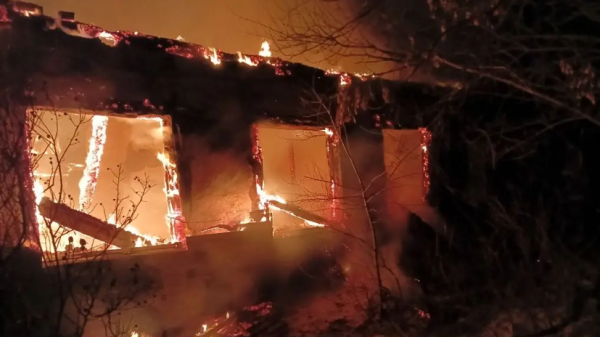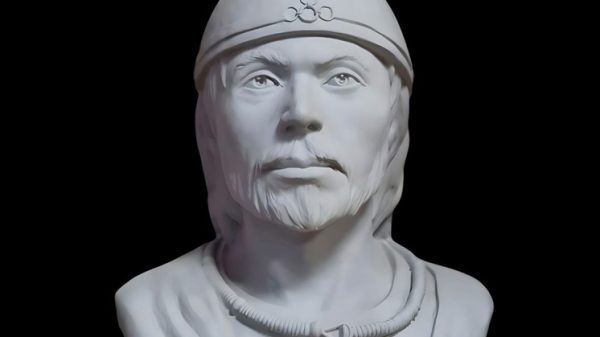On Saturday, New Zealanders will be asked to vote yes or no on whether Kiwis enduring “unbearable suffering that cannot be eased” have a legal right to end their life.
For Matt Vickers, the former husband of lawyer and euthanasia campaigner Lecretia Seales, the vote can’t come soon enough.
Lecretia died in 2015 of a brain tumour. Until her death, she and her husband fought tirelessly to make euthanasia legal in New Zealand, as it is in the Netherlands, Belgium, the Australian state of Victoria and some states of the US.
“I am feeling anxious I guess. I am really hopeful we will see a positive result, the polls are certainly looking that way, but opponents are doing their best to confuse and create doubt and fear,” says Vickers, speaking from New York where he lives with his now wife and baby.
Choice is fundamental to who we are as human beings.
Matt Vickers
“Choice is fundamental to who we are as human beings. When we don’t have choices we feel constrained. And I think it’s necessary for people to support this referendum because it does provide choice in situations where most choices have been taken away from them.”
The End of Life Choice Act 2019 was sponsored by ACT party MP David Seymour. It would allow those with a terminal illness to apply to terminate their life. Although the act has passed through parliament it will only come into force if more than 50% of voters tick “yes” – at the same time as they’re voting on a new government and whether to legalise marijuana.
The act outlines criteria for who can apply to end their life, including that they be aged 18 or over, are New Zealand citizens, are suffering from a terminal illness that will end their life within six months, “have a significant and ongoing decline in physical capability”, or are “enduring unbearable suffering that cannot be eased” and are in a position to make an “informed decision” about euthanasia.
Those suffering mental illness or decline would not be eligible, nor would those applying solely on the basis of “advanced age” or a disability. Two doctors – one independent – would have to sign off on the decision, with a psychiatrist called in if either doctor has any doubts.
“We are decades behind the world leaders on end of life choice, and I think it’s time New Zealand moved towards being a more compassionate and tolerant society,” says Seymour, who sponsored the bill.
“People continue to suffer in ways that are traumatic. I don’t want to have to suffer on to adhere to the morality of someone else. They’ve got their own body if they want to have a ghastly death.”
For months now polling has shown strong public support for the yes vote of about 60%-70%, and has the backing of the prime minister, Jacinda Ardern, opposition National party leader Judith Collins, former prime minister Helen Clark, and former attorney general Sir Michael Cullen.
“There is an overriding issue of control and dignity.” Cullen said, when fronting a campaign for the yes vote. Cullen has stage 4 cancer.
“It offers to people like me the chance of finishing the life I have enjoyed so much in a way consistent with my moral beliefs and my sense of the dignity of human life.”
But opponents are determined to keep fighting, saying they fear New Zealand’s most vulnerable people will face coercion or pressure to end their life, influenced by the fear of being a burden.
Those voting no include former prime minister Bill English, who is a practising Catholic, co-leader of the Māori party John Tamihere and former National party minister for seniors Maggy Barry.
The claim that vulnerable people will be disproportionately impacted by the act has not been supported by multiple reviews of euthanasia legislation in other jurisdictions, which have found the most likely demographic to access it are older, Pakeha and well-educated.
‘A very westernised law’
Huhana Hickey, 58, is of Māori origin and has a rare form of MS which confines her to a wheelchair. She will be voting no in the referendum come Saturday.
“Throughout this entire debate there has been no discussion with the indigenous people or other cultures. It’s a very westernised law. If we’re going to allow the state to legally kill its citizens we need to make sure we’re protecting the ones who are already being killed by neglect,” says Hickey, referring to the systemic disadvantage of Māori people, and the poor state of the public health care system.
We need to make sure we’re protecting the ones who are already being killed by neglect.
Huhana Hickey
“My concern is we don’t have dignity in living now for the disabled, and Māori are already discriminated against and denied treatment. Why in the middle of a pandemic are we discussing legally killing people?”
Political experts say that in years of unrest and instability voters tend to veer towards the status quo; which could affect the likelihood of both referendum questions passing.
If the euthanasia referendum is successful, it is binding and would come into effect in October 2021, regardless of who wins the general election on Saturday.
Mary Panko is the president of the End-of-Life Choice Society. She has witnessed three friends die long, painful deaths of cancer, and doesn’t want anyone else to suffer.
Panko says the act would only entertain euthanasia for the sickest in society – the 5%-6% of those at the end of their life for whom palliative care is no longer managing their suffering.
“There is wider movement through the whole medical community now that people should make their own choices – we’re talking about people in great suffering and pain,” Panko says.
“I loathe suffering, I loathe watching it in my friends and any sorts of creatures. It helps people to cope with terrible illness if they know they have the option of a peaceful death.”






















































Свежие комментарии